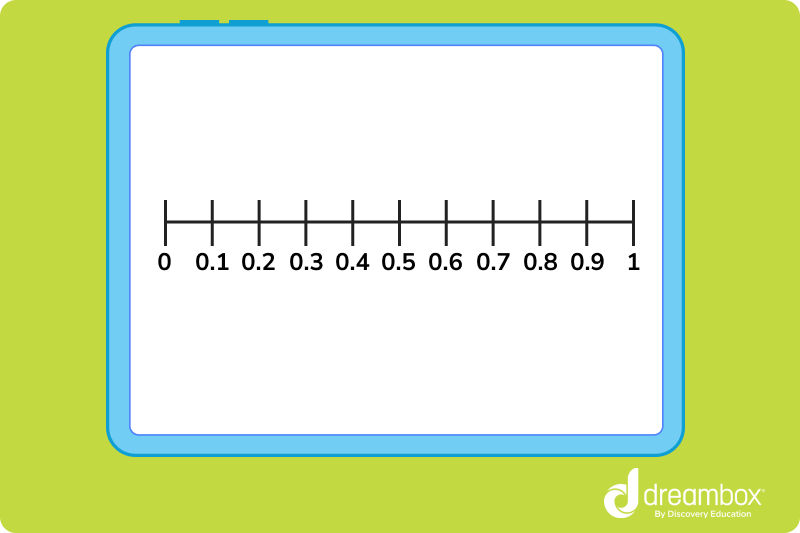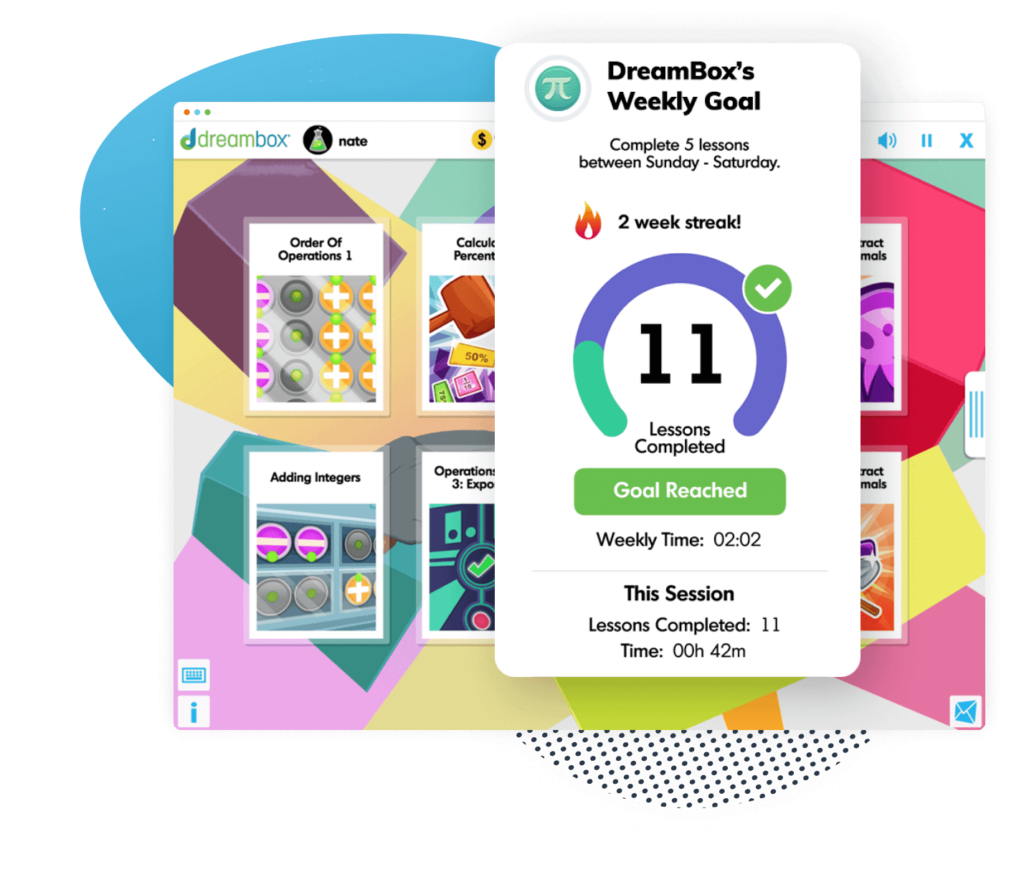40 Math Problems for 4th Graders
If you’re looking for ways to help your child boost their math skills and confidence, don’t miss this list of 40 fourth grade math problems!

Author
Katie Wickliff
Published:
Nov 2025
Key takeaways
- Fourth graders focus on multi-step word problems using all four operations—addition, subtraction, multiplication, and division.
- Math word problems for 4th graders are more complex and require greater comprehension skills than in earlier grades.
- In 4th grade, students will extend their knowledge of fractions and decimals.
By 4th grade, students begin to learn more complex math concepts. Now that they have a strong foundation in the four operations–addition, subtraction, multiplication, and division–students work with even larger numbers.
Word problems for 4th graders are often multi-step, requiring students to use critical thinking skills to determine how to solve the problem. Fourth grade math practice also focuses on fractions, with students learning to order, add, subtract, and multiply fractions together and by whole numbers.
If this sounds like a lot, don’t worry! This list of 4th grade math problems serves as a tool to strengthen concepts students have already been taught. You’ll notice that the questions are divided into sections: mixed operation word problems, place value, fractions, and decimals, so your student can complete all the problems or specifically focus on one area. If you’re looking for more math practice for 4th graders, check out Dreambox—an engaging, interactive math program that adapts to each learner.
40 math problems for 4th graders (with answers!)
Mixed operation word problems
1. Antonio has 32 stuffed animals and his little brother has 24 stuffed animals. How many more stuffed animals does Antonio have?
Answer
2. Eliza has 265 stamps in her stamp collection. She puts one stamp on 124 letters. How many stamps does Eliza have left?
Answer
3. Dylan wants to save up for a new video game that costs $48. He has $14 saved. He earns $10 for walking his neighbor’s dog and $5 for watering plants. How much more money does Dylan need?
Answer
4. Ollie has 3 boxes of colored pencils with 9 pencils in each box. He gives 5 pencils to his little sister. How many pencils does Ollie have left?
Answer
5. A Major League Baseball game uses eight dozen baseballs per game. How many baseballs are used after 2 games? (Hint: 12 = 1 dozen)
Answer
6. Josie, Gabriella, and Shawn are playing a card game. Josie has 8 cards. Gabriella has 3 times as many cards as Josie. Shawn has half as many cards as Gabriella. How many cards does Shawn have?
Answer
7. Emerson has $142. She wants to buy a LEGO set that costs $86. She also wants to buy her little brother a LEGO set that costs $72. Does Emerson have enough money? If not, how much more does she need?
Answer
8. Luisa has 212 friendship bracelets. If she kept 12 and divided the rest equally among 8 friends, how many friendship bracelets would each friend get?
Answer
9. There are 63 fourth graders at Piney Grove Elementary School. Forty of them are girls and the rest are boys. On Wednesday, 5 fourth-grade boys were absent. How many fourth-grade boys were at school on Wednesday?
Answer
10. Connor is helping his mom in their backyard garden. His mom bought 120 vegetable plants. Connor has already planted 20 rows of 5 plants. How many plants are left? How many more rows does he need?
Answer
Table of contents
Get 4th Grade Math Practice with DreamBox!
Place Value
1. Compose a 4-digit number: 4,000 + 300 + 60 + 2 is ___________
Answer
2. Compose a 5-digit number: 50,000 + 3,000 + 100 + 20 + 1 is __________
Answer
3. Find the missing number: 7,000 + ____ + 80 + 3 = 7,683
Answer
4. Find the missing number: 60,000 + 2,000 + ___ + 70 + 3 = 62,773
Answer
5. Write 372 in expanded form
Answer
6. Write 1,422 in expanded form
Answer
7. Write 29,379 in expanded form
Answer
8. Round 68 to the nearest ten
Answer
9. Round 341 to the nearest ten
Answer
10. Round 772 to the nearest hundred
Answer
Fractions
Compare the fractions. Write > (greater than), < (less than), or = (equal to) between each pair of fractions:
1. Compare the fractions: ⅙ and ½
Answer
2. Compare the fractions: ⅓ and ¼
Answer
3. Compare the fractions: ½ and 2⁄4
Answer
4. Compare the fractions: ⅛ and ¾
Answer
5. Add the fractions: 2⁄6 + ⅚
Answer
6. Add the fractions: 4⁄8 + 7⁄8
Answer
7. Subtract the fractions: 6⁄11 − 4⁄11
Answer
8. Subtract the fractions: 7⁄10 − 2⁄10
Answer
9. Multiply the fraction by the whole number: 2⁄4 × 2
Answer
10. Multiply the whole number by the fraction: 5 × 3⁄12
Answer
Decimals
Use the image below to answer the following questions:

1. Find the decimals 0.2 and 0.9 on the number line below. Which is larger?
Answer
2. Mark approximately where the decimal 0.33 would be on the number line below.
Answer
3. Rewrite the decimal 0.52 as a fraction.
Answer
4. Rewrite the decimal 0.2 as a fraction.
Answer
5. Compare the decimals: 6.72 and 7.11. Which is larger?
Answer
6. Compare the decimals: 0.1 and 0.04. Which is larger?
Answer
7. Compare the decimals: 0.31 and 2.13. Which is larger?
Answer
8. Add the decimals: 7.7 + 2.3
Answer
9. Add the decimals: 0.6 + 5.4
Answer
10. Add the decimals: 1.8 + 0.5
Answer

The math program that drives results
Get started today!
DreamBox adapts to your child’s level and learning needs, ensuring they are appropriately challenged and get confidence-building wins.

About the Author
Katie Wickliff
Katie holds a master’s degree in Education, has over 15 years of education experience as a primary classroom teacher, and is Orton-Gillingham certified tutor. Most importantly, Katie is the mother of two primary school students, ages 8 and 11. She is passionate about maths education and firmly believes that the right tools and support will help every student reach their full potential.